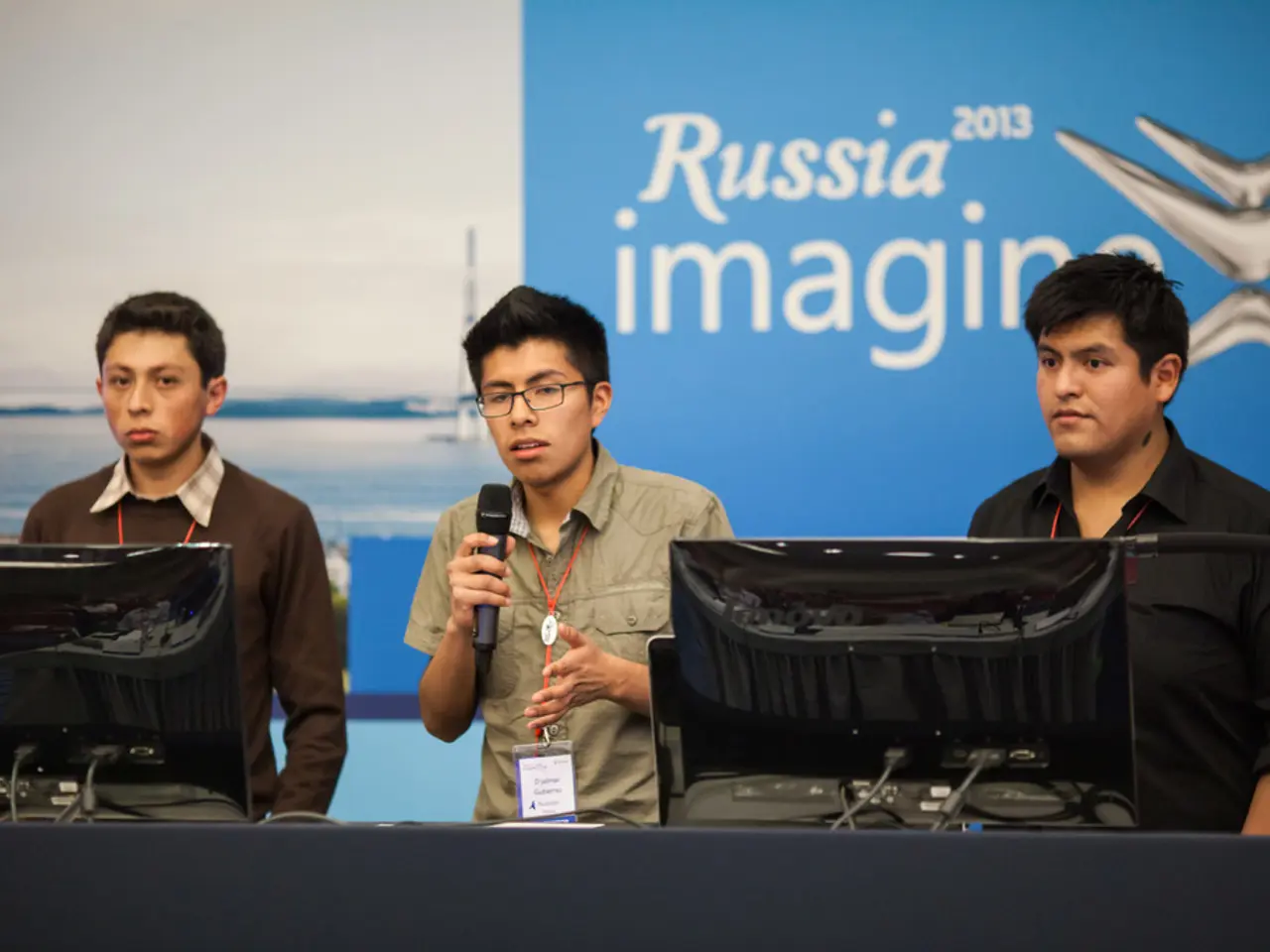Artificial Intelligence Resources Targeting Jobless Youth Population
In Africa, AI career tools are proving to be a promising solution for addressing youth unemployment. These tools offer personalized career guidance, skills assessment, and job matching, aligned with real-time labor market demands [1][3]. Initiatives such as South Africa's Tshepo 1Million, Microsoft's AI and cybersecurity training, and Kenya's African Centre for Women, Information Communication and Technology (ACWICT) are making strides in upskilling youth and linking them to the digital economy [1][2][5].
However, the successful implementation of these AI career tools faces several challenges. Infrastructure deficits, such as limited and costly internet access, poor digital infrastructure, and unreliable power, hinder youth access to AI platforms [1][3]. Many youths also lack foundational digital literacy or AI-specific competencies, and education systems often do not align with current labor market needs or AI skill demands [1][4].
Absence of supportive political frameworks and integration of AI initiatives into national employment strategies limit scalability and sustainability [1][4]. Economic barriers, such as poverty, also limit the ability of some youths to participate fully in training [2]. Furthermore, the lack of local AI talent and capacity affects the localization and contextual relevance of AI tools, restricting their effectiveness [1][4].
Addressing these barriers requires coordinated investments in digital infrastructure, educational reform integrating AI skills at tertiary levels, partnerships among governments, private sector, and communities, as well as policy development focused on youth employment and digital inclusion [1][2][4][5]. Successful programs combine skill development with mentorship and financial incentives to boost accessibility and impact across diverse African contexts.
Microsoft Philanthropies, for instance, has provided a $600,000 grant to ACWICT in Kenya to train over 300,000 youth, particularly in the agri-food sector [2]. The BrighterMonday Uganda-Mastercard Foundation partnership showcases how AI-powered tools, such as virtual career assistants, are making strides by providing real-time, personalized job search support [1].
Collaboration between governments and private organizations is key to establishing policies that promote innovation while safeguarding data sovereignty [3]. Pablo Langa, Founder and Managing Partner of EDT&Partners, emphasizes the broader impact of such initiatives on societies and economies [3]. Nazia Pillay from SAP Southern Africa calls for private sector organizations to step up investment in workforce development [3]. Reshma Sheoraj from World Data Lab emphasizes the need for governments to design evidence-based programs and invest in infrastructure to address youth employment [3].
AI could contribute up to $1.5 trillion to Africa's GDP by 2030 [4]. Takeshi Oikawa, Managing Director and Partner at BCG, underscores the urgency of addressing infrastructure deficits, talent shortage, policy gaps, language barriers, and data bias in scaling AI career tools across Africa [4]. Eunice Muthengi from the Mastercard Foundation stresses the need for collaboration across sectors to create more effective interventions for young people's lives [4].
AI-driven career tools bring advantages in terms of availability and affordability when compared to traditional career counseling [3]. The International Finance Corporation (IFC) predicts 230 million "digital jobs" in Sub-Saharan Africa by 2030, all requiring some level of digital skills [4]. Young people must commit to continuous learning and leverage data insights to guide their career paths [3].
In conclusion, AI career tools have the potential to significantly address youth unemployment in Africa. However, it is crucial to overcome the challenges posed by infrastructure deficits, skills gaps, policy and regulatory challenges, economic barriers, and limited local AI talent and capacity. A combined approach that leverages the strengths of both AI tools and human counselors could be the most effective way to guide young job seekers.
- To effectively utilize AI career tools in addressing youth unemployment across Africa, it's essential to develop regulatory frameworks that integrate these initiatives into national employment strategies and data-focused policies, ensuring both innovation and data sovereignty.
- As AI career tools in Africa hold the potential to contribute significantly to the continent's economic growth, there is a need for the private sector to invest more in workforce development and education-and-self-development programs, fostering AI-specific competencies among the youth. This will help bridge skills gaps, thereby unlocking the full potential of these tools in the finance, technology, and general-news sectors.




